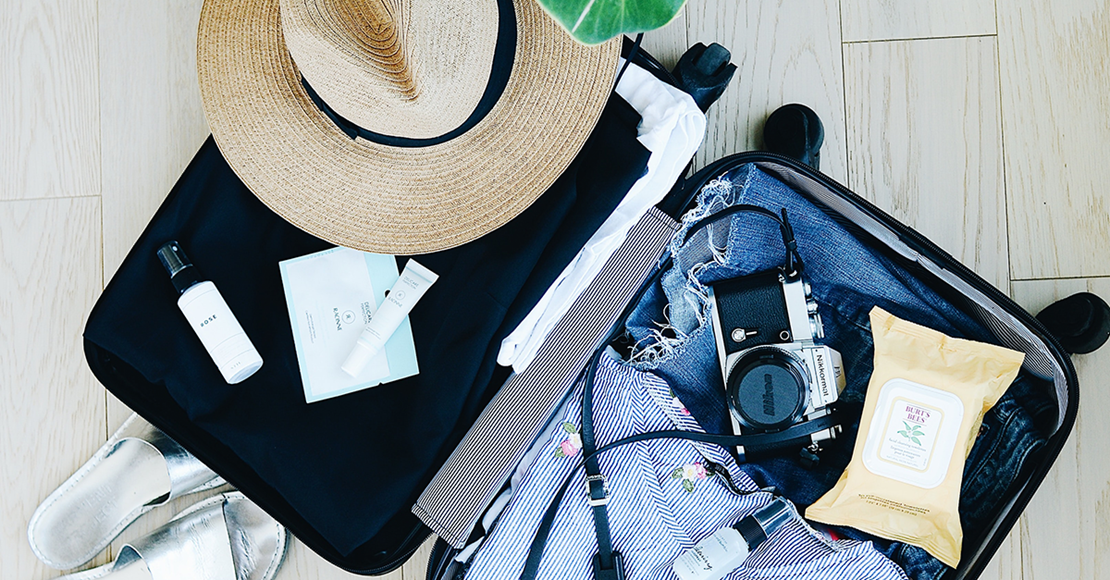
After being cooped up for months at a time, everyone needs a vacation! With warmer weather and the end of school around the corner, many families are thinking about taking to the road (or the beach, or the mountains) for a much-needed sabbatical. Before you go, however, you should take a few steps to protect your home and make sure it stays safe and ready for your return while you’re resting and recharging.
1. Smarten up your home appliances
Upgrading your home with “smart” appliances can really pay off and help you keep your property safe and secure. Smart home devices like door locks, video doorbells, cameras, thermostats, house lights, garage doors, and other security features allow you to see your home in real-time and review video, turn on or off lights as if there is someone actually on the premises, adjust the thermostat, monitor suspicious activity on the property, and more. Installing and coordinating these smart home solutions, and getting them up and running before you depart, can provide you with unbeatable security and peace of mind.
2. Traditional home security services
If you’re not ready to upgrade your home but want the most peace of mind, a traditional home monitoring and security service is the way to go. These companies monitor your property using in-person visits, electronic sensors, cameras, and more. Some even provide money-back guarantees against burglary. You can often get a discount on your homeowner’s insurance policy by providing proof of a home security system or contract with a home security company.
3. Hiring a house sitter
If you’re leaving for a more extended period of time, especially if you have plants or animals that need to be cared for, it may make sense to engage a house sitter. Whether they stay at your property or simply drop infrequently, this level of attention to your home can provide you with peace of mind (while also ensuring your plants survive).
4. Enlist the help of friends or neighbors
If you’re going on a shorter vacation, the easiest way to improve your home security is to let a few of your friends and neighbors know you’re heading out of town. Ask a trusted friend or neighbor to drop by the house and collect mail, water plants, and make a general overview of the premises. (Make sure you bring them a souvenir or bake them something delightful when you return!)
5. Hiring a management company
If you rent out your property or are a frequent traveler, it may make sense to actually hire a management company to make sure your property is safe, secure, and well-maintained. For snowbirds (who spend the winter in more temperate climates), hiring a management company can help ensure that their pipes don’t freeze and other winter hazards don’t render their home unlivable by the time they return in the spring.
6. Be careful with your social media
If you’re planning a vacation, don’t publicize the dates your home will be vacant (and an easy target for burglars) on your social media feeds. It also may be prudent to wait until you return to post your album of vacation photos if your home is empty while you are away.
7. Be smart about your door codes or outdoor keys
Before you head out of town, find new, more clever hiding places for your outdoor emergency keys or remove them altogether and leave a spare with a friend or neighbor. If you have a smart lock on your door, it’s a good time to reprogram the lock to a new passcode. If you are engaging a friend, neighbor, or housesitter, you can program a temporary code that will expire at the end of your vacation so they won’t have permanent access to your home.
8. Care for your pipes and water heater
If you’re vacationing in the dead of winter (hopefully to somewhere much warmer), take steps to winterize your home, including making sure that your pipes don’t freeze while you’re gone. Keep your home temperature set at a reasonable level; make sure your pipe insulation is adequate; leave a trickle of water flowing. While you’re gone, you can adjust your water heater to a much lower temperature to save the cost of heating water that will not be used; many units have a “vacation” mode for this purpose.
9. Handling mail, packages, and newspaper
If you will be gone for any significant amount of time, you should pause your mail delivery with the USPS. (This can be done easily online or in your local branch.) For packages and parcels, you may wish to leave a note for your carrier directing them to a neighbor (without mentioning you are on vacation) or make advance arrangements for them to be re-routed. If you get newspaper delivery, contact your carrier or the paper to ensure they pause your subscription; nothing telegraphs a family’s absence more effectively than a week’s worth of newspapers on the stoop!
10. Disconnect electronics and get things off the floor
Finally, a next-level precaution to take when you go on vacation is to make sure that all of your electronics are unplugged (except your modem, if your smart devices use it to connect to the internet). This will help save power and protect them in case of a power surge or lightning strike. If you live in an area where flooding is common, make sure things are not stored on the floor in the basement, garage, or other areas that may experience water infiltration.
If you take steps to protect your home, you can rest and relax, knowing that your home will be safe and secure when you return.
Not FDIC Insured | No Bank Guarantee | May Lose Value | Not a Deposit | Not Insured by any Federal Government Agency



